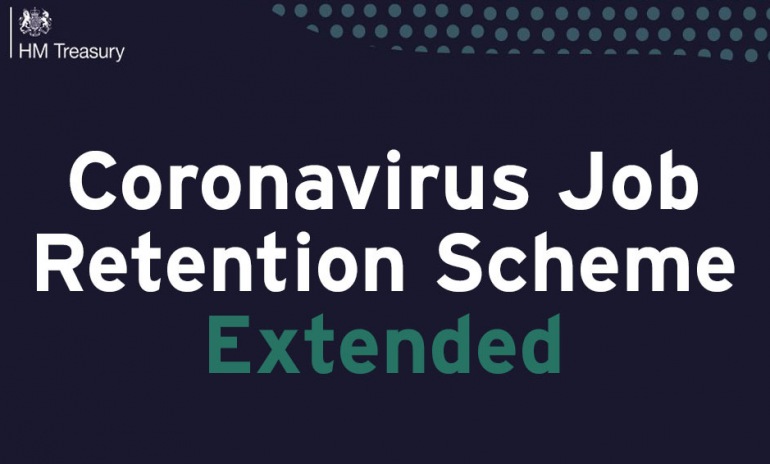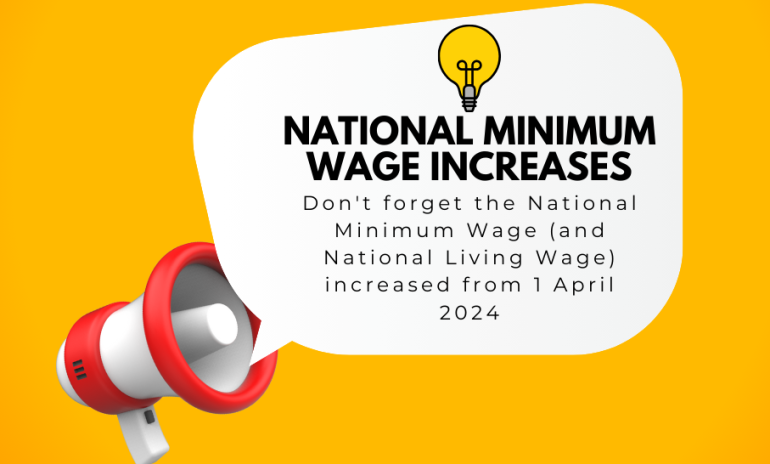Job Retention Scheme Extended Following National Lockdown Announcement
Date: 02/11/20

After announcing we will be going into a national lockdown from Thursday 5th October, Boris Johnson also announced the extension of several business support schemes including, the Coronavirus Job Retention Scheme (CJRS) or ‘furlough scheme’. The CJRS was due to end on 31 October with the new Job Support Scheme (JSS) set to take its place from 1 November. However, the JSS will now be postponed until the extended furlough scheme has ended.
The furlough scheme has been reinstated with similar conditions as applied in August 2020.
The grant will pay 80% of the employee’s current wages for time not worked, up to £2,500 per month. The employer must pay all of the employer’s NIC and employer’s minimum workplace pension contribution on those wages.
Flexi furlough
Flexible furlough will be permitted alongside full-time furlough, so staff may be brought back part-time to say, set up the premises for the lifting of national restrictions, or to prepare for Brexit.
The same rules for flexible furlough will continue to apply as they have done since 1 July, so the employee may be furloughed for a few days or hours per week. There appears to be no minimum time set for furloughed hours or working hours.
Which employees qualify?
Employers will need to have a UK bank account and UK PAYE schemes to claim the grant. Neither the employer nor the employee needs to have previously used the CJRS.
For employees to be eligible to be claimed for under this extension:
- Employees must be on an employer’s PAYE payroll by 23:59 on 30 October 2020. This means a Real Time Information (RTI) submission notifying payment for that employee to HMRC must have been made on or before 30 October 2020.
- Employees can be on any type of contract.
When calculating the claim amount:
- Employers can claim the grant for the hours their employees are not working, calculated by reference to their usual hours worked in a claim period.
- When claiming the CJRS grant for furloughed hours, employers will need to report and claim for a minimum period of seven consecutive calendar days.
- For worked hours, employees will be paid by their employer subject to their employment contract and employers will be responsible for paying the tax and NICs due on those amounts.
Further details of the extended furlough scheme are expected to be released by the government shortly.
Other support packages include:
Extension of Mortgage Holidays
Mortgage payment holidays will now be extended for borrowers who have not yet had a six-month mortgage payment holiday. This means if you have not previously had a mortgage holiday then you will be able to apply for a full six-month period and if you have already started a mortgage payment holiday, then you will be able to top up to the full six months without this being recorded on your credit file.
It’s important to note that as this is a ‘holiday’, the liability is still owed, you will simply be deferring repayments and interest will still accrue on owed balances.
Business Grants for Businesses with Premises
As previously announced for businesses forced to close due to local lockdowns, these grants will be available for businesses with properties that are now forced to close due to the national lockdown.
The size of the grant is determined by the rateable value of the property:
- For properties with a rateable value of £15k or under, grants to be £1,334 per month or £667 per two weeks;
- For properties with a rateable value of between £15k-£51k grants to be £2,000 per month or £1,000 per two weeks;
- For properties with a rateable value of £51k or over grants to be £3,000 per month or £1,500 per two weeks.
Business Grants for Businesses without Premises
Additional funding has been made available to local councils for discretionary grants for businesses that are required to close but do not pay business rates. It will be at your local councils’ discretion to choose how this money is distributed. More information will be available shortly.

Author: Alan Taylor FCCA
A former pupil at Ripley St Thomas C of E High School in Lancaster, Alan joined Scott & Wilkinson directly from school in 1994 and qualified as an Accountant in 2001. Alan is responsible for a variety of clients operating in...
0 Comment
Add your Comment
We have the ability to edit and/or delete posts and comments. Links should be relevant to the topics. Please note all comments are subject to review before inclusion.














Nobody has commented yet. Why not add one?